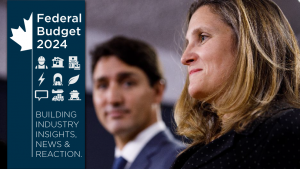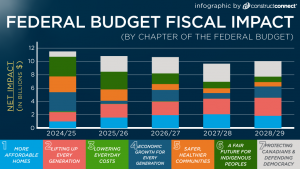The federal finance department continued its climbdown on proposed tax reforms affecting Canadian Controlled Private Corporations (CCPC) on Oct. 18, with Finance Minister Bill Morneau telling a New Brunswick audience that a new tax on passive income investments within CCPCs would only apply to earnings above $50,000 per year.
Finance officials said that threshold protects 97 per cent of Canadian private corporations using passive savings vehicles, which were targeted by the new rules because financial officials argued firms were using them for such purposes as retirement savings instead of for regular business cycle investments.
Two days prior, Morneau was joined by Prime Minister Justin Trudeau in Stouffville, Ont. to clarify proposed new rules against income sprinkling among family members within a CCPC. Contributions from family members who take on financial risks will now be included in the new reasonableness definition.
The finance department has also announced changes to provisions governing access to the lifetime capital-gains exemption, measures intended to ease concerns over possible restrictions to the transfer of businesses between generations in a family.
Additionally, Trudeau and Morneau unveiled a drop in the small business tax rate to 10 per cent, effective Jan. 1, 2018, and to nine per cent, effective Jan. 1, 2019.
John Gamble, CEO and president of the Association of Consulting Engineering Companies – Canada, was cautious in commenting on the recent revisions to the tax proposals originally introduced in July. During the two-month consultation period, which closed Oct. 2, Gamble had said, “I am hard pressed to think of any other issue that has caused membership to call and email us this much.”
“It was good news about the small business tax rate,” said Gamble Oct. 18. “We certainly see the limit in the capital gains as a movement in the right direction, but there are still a lot of questions and the devil is still continuing to be in the details. We certainly heard some soothing words but we have not seen the meat yet. So at this juncture our concerns remain largely the same, though we do appreciate the government’s apparent willingness to continue the dialogue.”
During the previous interview, Gamble said so-called fairness measures designed to ensure employees and small business owners are taxed generally the same fail to recognize the risks associated with running a small business.
“The majority of firms that we and the CCA (Canadian Construction Association) represent are small businesses, and these are the ones that are going to be in the collateral damage on this,” said Gamble. “The government’s intentions might be well intended. But this is not a surgical strike at one per centers, this is going to have enormous collateral damage across small- and medium-sized enterprises.”
In a media interview Oct. 7, Morneau said the original intent of the changes was to encourage Canadians to invest in their businesses and equalize the tax burden felt by both employees and small-business owners, but acknowledged critics had identified a number of unintended consequences of the proposed reforms. Areas of concern that would be addressed, he said, included possible impacts to family business succession, on women planning for maternity leave and other family issues and on the ability of businesses to save to reinvest.
The CCA and the Toronto Construction Association (TCA) were among construction stakeholders taking public positions against the proposals during the government’s consultation period.
The CCA joined more than 40 organizations from across Canada to form the Coalition for Small Business Tax Fairness. The idea behind the group is to provide a unified voice opposing the federal government’s proposals.
TCA president and CEO John Mollenhauer issued a plea to TCA members to visit the Canadian Chamber of Commerce protest website and write to their members of parliament. The statement said the reforms would have a “profound” effect on small- and medium-sized business owners.
TCA chair Craig Lesurf expanded on the association’s position in a note to the Daily Commercial News.
“It seems to disadvantage smaller mom and pop type businesses and will hurt the construction industry and TCA members,” he said. “Our industry in Canada lags behind many throughout the world in that we don’t keep enough cash (retained earnings) on our balance sheets.
“Imagine that you have cash in the company to satisfy bonding requirements, for future expansion, capital expenditures, emergencies or even retirement and the government taxes you heavily on this for doing the right thing of having cash for security purposes or for a rainy day in a ridiculously cyclical industry. These changes will put an end to some of the long-term tax-planning measures that have been in place for decades to protect family assets.”











Recent Comments
comments for this post are closed